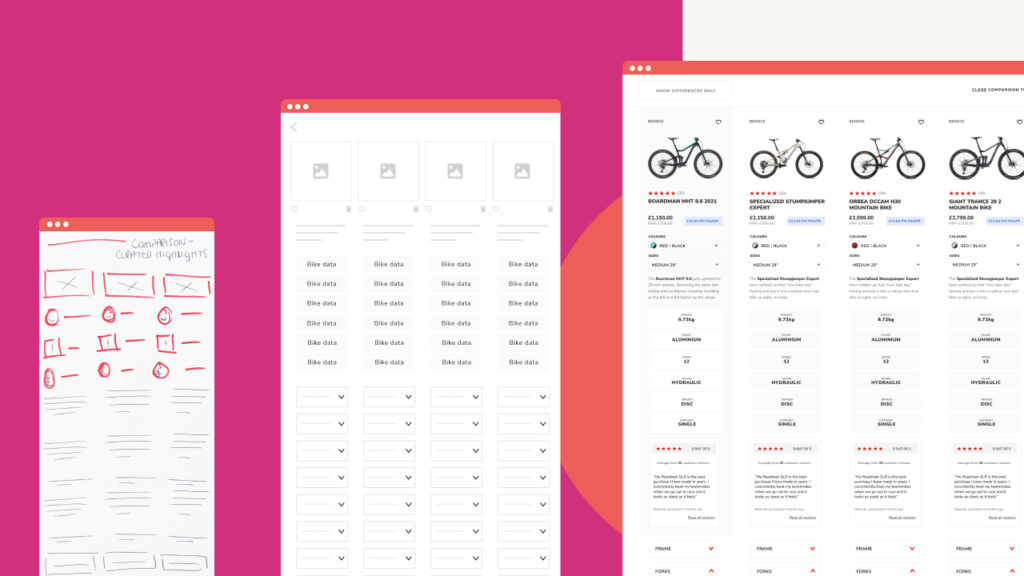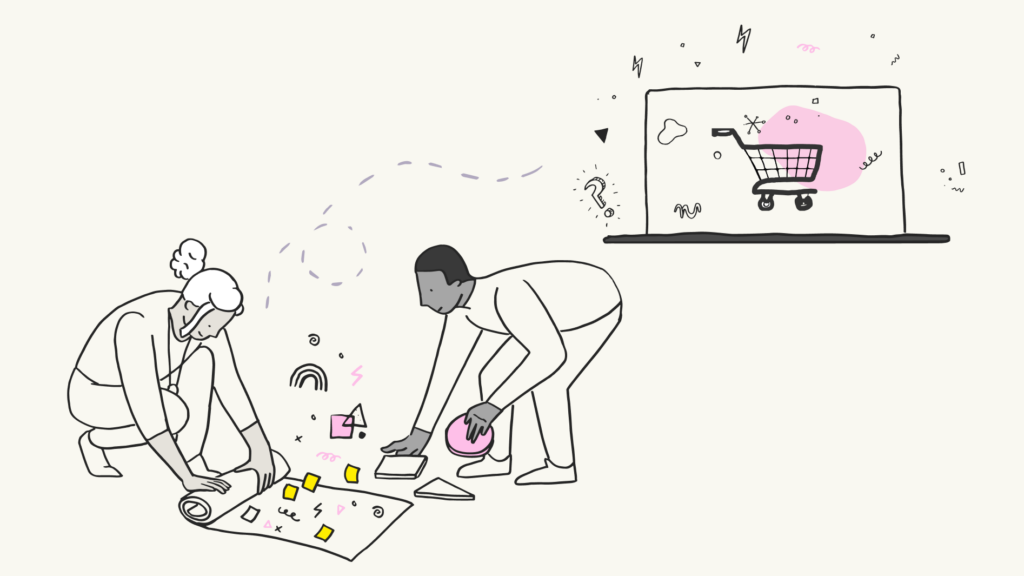‘So how does a psychology graduate end up in web design?’
This is a question I’ve been asked many times by friends and family since I joined Nomensa as a user experience consultant six months ago. I joined as a fresh faced graduate, straight from an undergraduate psychology degree with excitement but not a huge amount of knowledge of the industry I now found myself working in. Many of my graduate peers are pursuing careers more directly understood as psychology – clinical work, educational psychology, etc., and it took a little while for me to convince even myself of how intrinsically linked psychology and UX design are.
User experience design was not something I had considered throughout my studies, in reality it wasn’t something I knew existed until fairly recently. What I did know was that my strengths lay in the social side of psychology, how people interacted with each other and their social surroundings. My studies had involved research into attention, perception and courses in memory, globalisation and social communication. I’d also always had an interest in design and more generally a creative style of thinking and working, so set about looking for areas that might combine these passions.
I came across the field of UX purely by chance, through looking at creative, analytical, people-focused industries, but it was an area that instantly appealed. Despite never having directly studied for the role, the more I learnt about UX, the more I discovered how relevant my existing skills were. The way I progressed with my understanding of the area was simply to read all I could lay my hands on!
My dissertation research looked at attention and control, specifically studying the effects of being presented with distracting items on screen at the same time as trying to complete a computer categorisation task. We explored how being shown items on screen that were either the same as the item in focus (congruent) or different (incongruent) affected how quickly and effectively participants could categorise the central item. We also looked at how this varied if the participant was consciously aware of the distracting items, or if they were presented so briefly that the participant was not aware they had been shown anything.
How a participant’s ability to complete their intended task is affected by other stimuli is clearly a topic that relates to UX easily; however I believe there are plenty of skills that the average psychology student has which makes them valuable when practising UX.
These include:
- A basic understanding of cognitive psychology. Perception, memory and attention are all vital elements to understanding how a user might engage with a design, or how a design is causing problems through stressing these cognitive functions.
- An interest in exploring people’s motivations. Why does one user struggle while another might not? What behaviours can we predict from better understanding motivations and fears? Understanding people’s mental models are a huge part of the testing process, which the psychological study of schemas and affordances prepares you well for.
- The basics of heuristics. Heuristics are the cognitive rules of thumb people use in everyday life, which help us make decisions quickly and efficiently, but sometimes lead to errors in judgement. These are useful tools for understanding why certain interpretations or mistakes might be made, as well as understanding general testing behaviour better. Examples of confirmation bias, attribution bias and availability bias can all be found in user testing.
- A background in empirical research, experimental design and reducing bias. Conducting user testing really isn’t that different to some forms of psychology research. You are asking a participant to perform a task for you, observing how they respond, making deductions, drawing conclusions from these sessions and using these conclusions to inform the next steps. The researcher has to be aware of many similar problems such as trying not to lead the participant, reduce elements such as social desirability bias and aim for the highest level of ecological validity.
- Empathy. I’ve been involved in various user testing projects and by far the easiest way to get value from these sessions is to empathise with the user. Although this sounds obvious, mastering the ability to empathise with the participant and put them at ease is harder than it sounds. Observation and listening skills are key to understanding where they are coming from and learning to interpret when they might be holding something back.

- Also useful is an understanding that participants don’t always say what they mean or do as they say. Psychological research has found that there are many instances in which a person’s thoughts, attitudes and behaviour do not agree. When testing we need to rely on what the user actually does, rather than what they say, think or remember. Participants may say they prefer one concept, but perform better in an alternative version.
- A background in both behaviour and statistics. This includes a valuable scepticism when it comes to taking statistics at face value. As psychologists, we need to know more about the sample size, method of collection and how the data has been interpreted before deciding whether it supports a certain conclusion. This approach can be very useful when it comes to interpreting data such as analytics, where it is crucial not to jump to conclusions based purely on numbers. The data needs to be looked at within context and understanding of why people are doing certain behaviours.
These basic skills provide a great starting point regardless of specific theories or principles. Of course, there are plenty of more specific areas of psychology that directly relate – social influence, persuasion, learning behaviours, memory, decision making, etc. What we do is more than just making a website look good, giving your user an enjoyable experience is at the core of building social relationships and emotional engagement.
It is this ability to look at the bigger picture which I think makes a psychologist a great addition to a UX team. Psychologists generally are encouraged to take a holistic approach towards understanding any behaviour, exploring the possibilities from many viewpoints and attributing to a range of factors. As a result, they are highly suited to the multidisciplinary area of UX, which combines analytic and creative skills in an exciting and fast-paced environment. It’s certainly a career in an exciting field that I’d recommend to any psychology graduate with an interest in the digital world.
We drive commercial value for our clients by creating experiences that engage and delight the people they touch.
Email us:
hello@nomensa.com
Call us:
+44 (0) 117 929 7333




